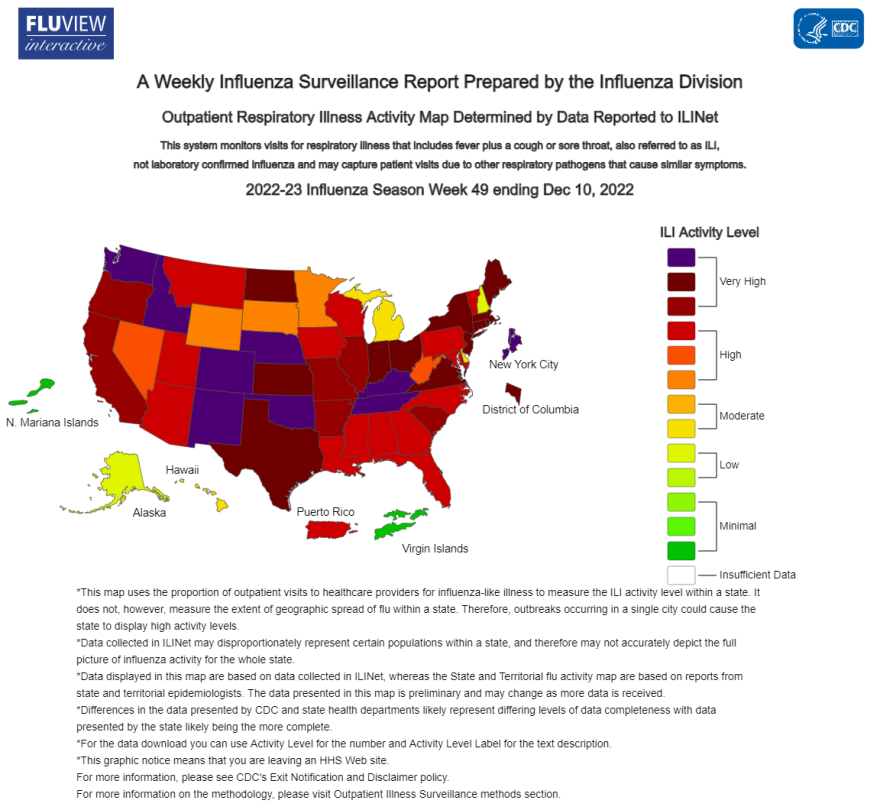Ohio’s top public health doctor is urging the public to take steps to prevent the spread of COVID-19, flu and RSV during holiday gatherings to mitigate the likelihood of a surge in illness in the new year.
“A large number of hospitalizations is entirely possible,” said Dr. Bruce Vanderhoff, director of the Ohio Department of Health (ODH) during a press conference Wednesday. “Not any one of these three viruses is showing a trajectory of unrelenting increase, but they’re present together in very high numbers.”
Flu season started early this year in Ohio and across the country, figures from the Centers for Disease Control and Prevention (CDC) show. And RSV, or respiratory syncytial virus, which most commonly affects small children, has been bedeviling Ohio parents, schools and daycares in for weeks.
RSV numbers are beginning to taper off, and Ohio has recently seen a slight decline in flu as well, Vanderhoff said.
What concerns public health officials is the possibility that holiday get-togethers will spread these viruses further and put additional stress on hospitals, which have had to cope with the fallout from the “tripledemic,” Vanderhoff said.
"Hospitals are coping … but we all have to do our part to mitigate the risk of a severe outbreak after the holidays," he said.
Staying home when you don’t feel well, masking in public, frequent handwashing or sanitizing and vaccines can help, said Dr. Joe Gastaldo, the head of infectious disease at OhioHealth.
“If you have a respiratory virus, we don’t want you going to work. If you have to leave the house, wear a high-quality mask,” he said. “It’s very important for people to be up-to-date on their vaccines and get a flu shot.”
This year’s flu vaccine protects against the dominant strain of the virus that is currently circulating and the COVID-19 booster provides protection against the omicron variants that are making people sick right now, he said. There is no vaccine available for RSV.
“I get my flu shot every year,” said Gastaldo. “It’s a no-brainer.”
The good news is that from a public health perspective, the system is in a much better position to weather a wave of infections than in past years, said Vanderhoff.
The vaccines do a good job of preventing severe illness, be that from flu or COVID-19, that can cause hospitalizations, he said. And for those who are infected, there are treatments available for people who are more vulnerable to serious disease.
Those medicines, Tamiflu for influenza and Paxlovid for COVID-19, have to be taken within days of the onset of symptoms, Gastaldo said. So it’s important to have a plan to get tested quickly and communicate your status with your doctor so you can get a prescription if you need it.
Patients can test themselves at home for COVID-19, but a flu test must be done in a doctor’s office, said Gastaldo.
In terms of holiday gatherings, public health officials have learned a lot in the past two years on how to stay safer. Ventilation is important, said Gastaldo.
“For Christmas at my parents' house, we’re going to crack the window,” he said.
You can also take a COVID-19 at-home test before you go and wear a mask.



